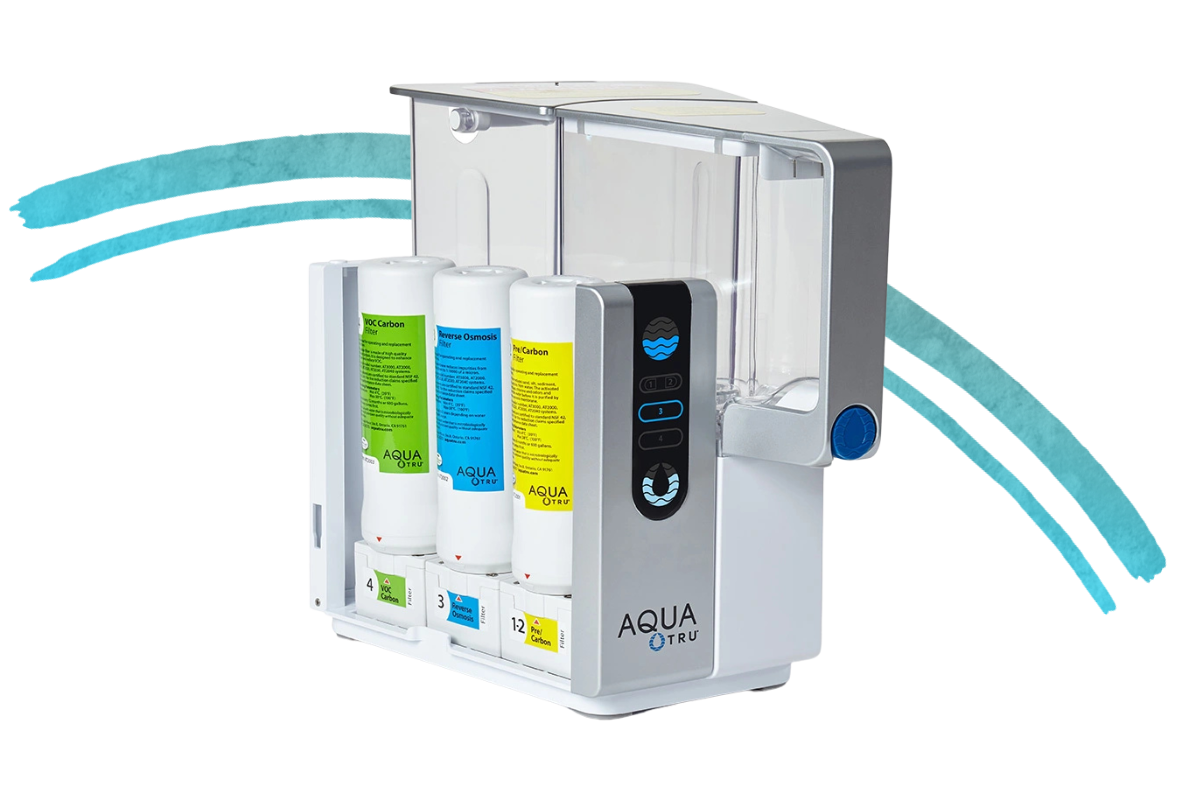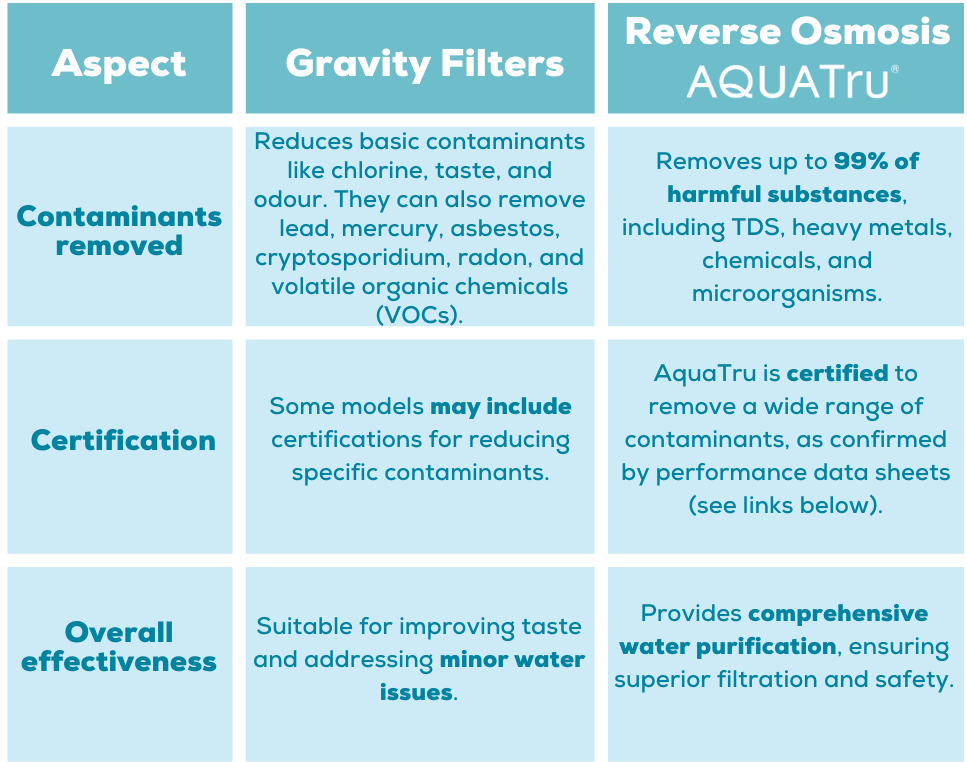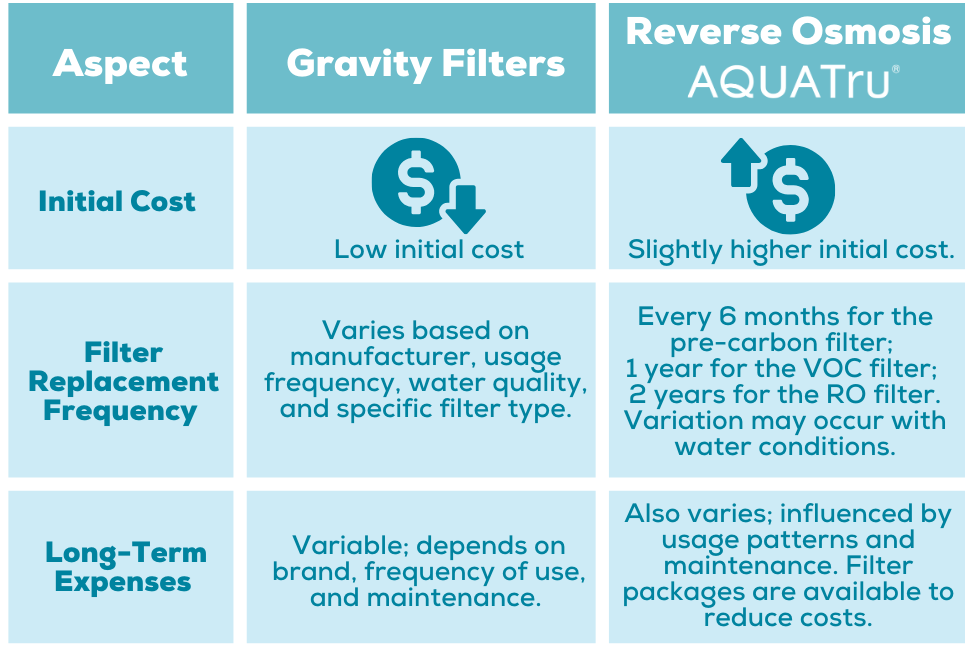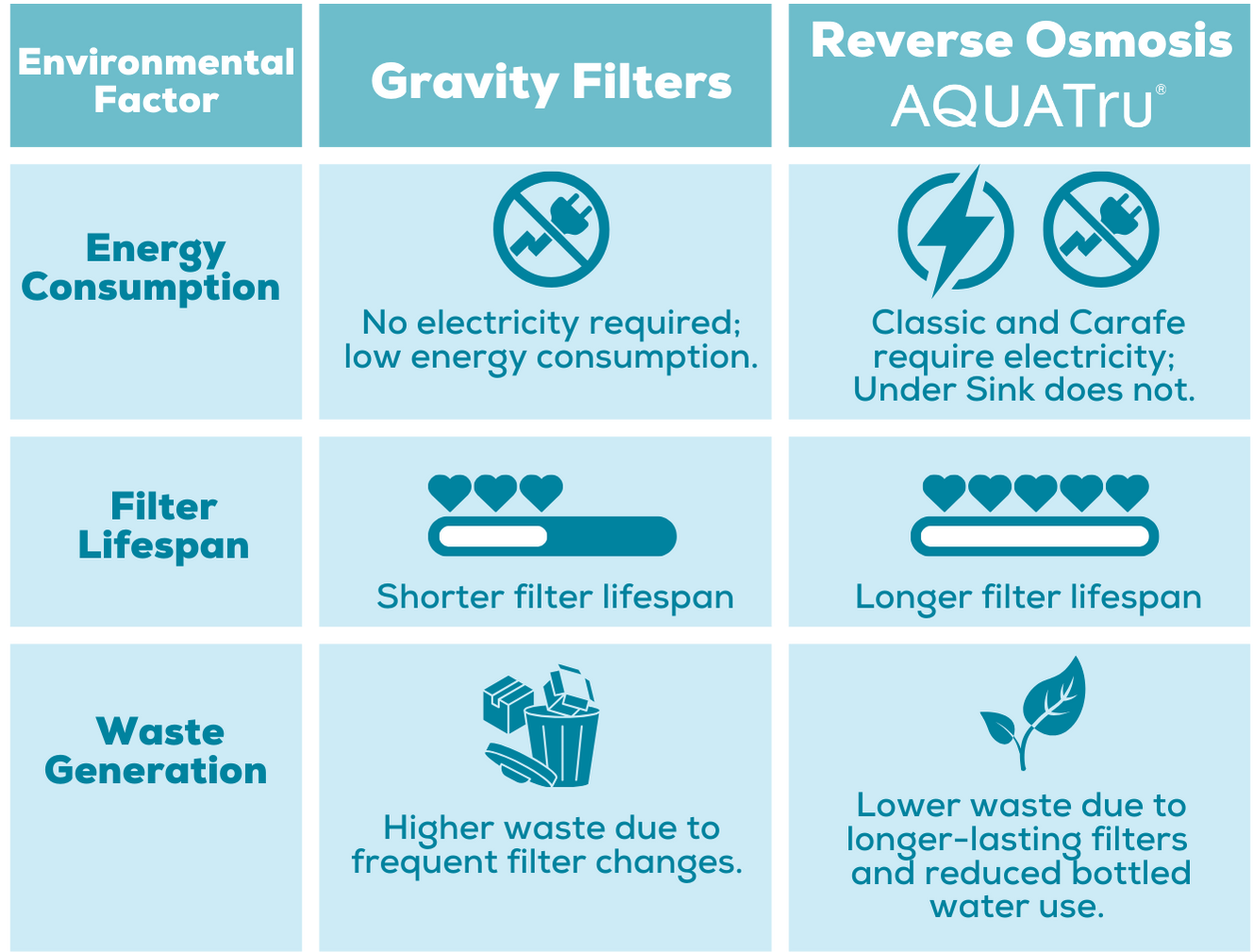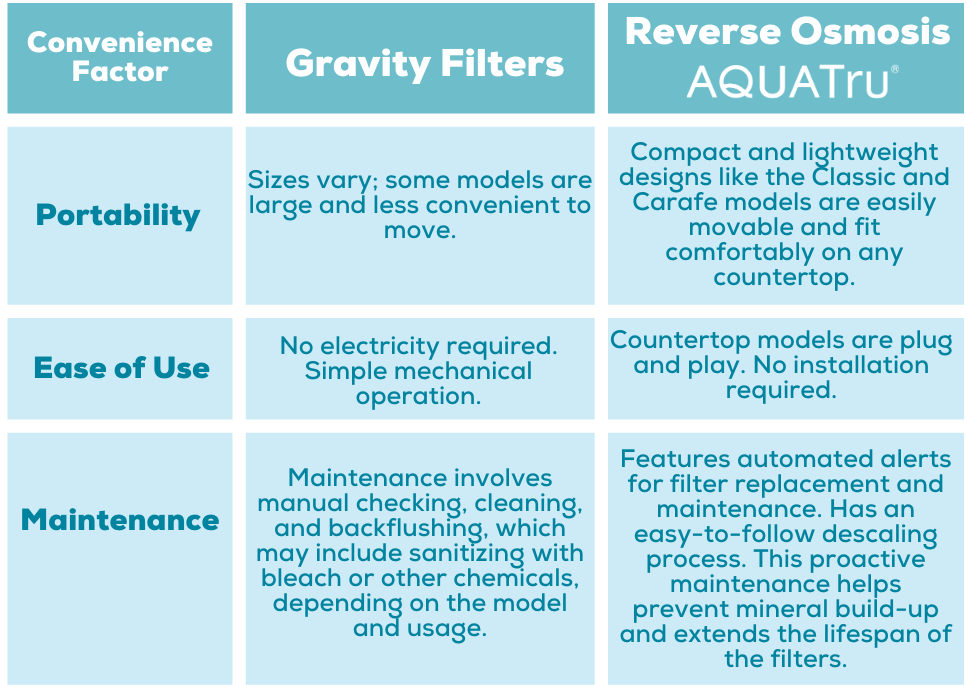Gravity filters vs. reverse osmosis filters:
Which is right for you?
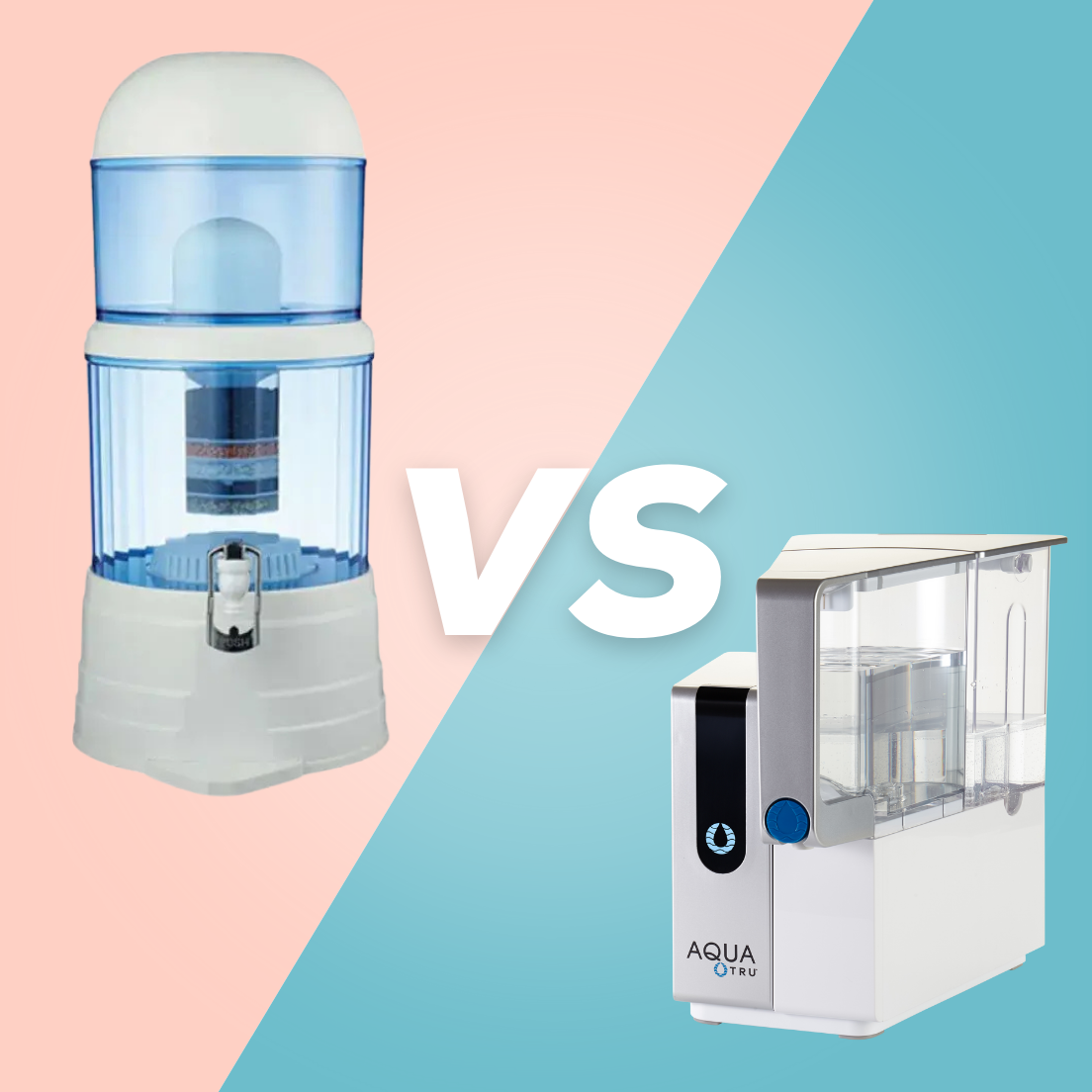
Access to clean water is essential for staying healthy and avoiding waterborne illnesses. Concerns about tap water quality have increased, so more people are turning to filtration systems to ensure their drinking water is safe. Issues such as unpleasant taste, strange smells, and chemical traces in tap water have encouraged individuals to choose filtered water. Not only does it taste better, but it also provides extra reassurance about water safety. While gravity filters help improve taste and remove minor impurities, reverse osmosis systems deliver a more thorough purification by eliminating a wider range of contaminants. Explore the advantages of each method to find the one that suits your needs.
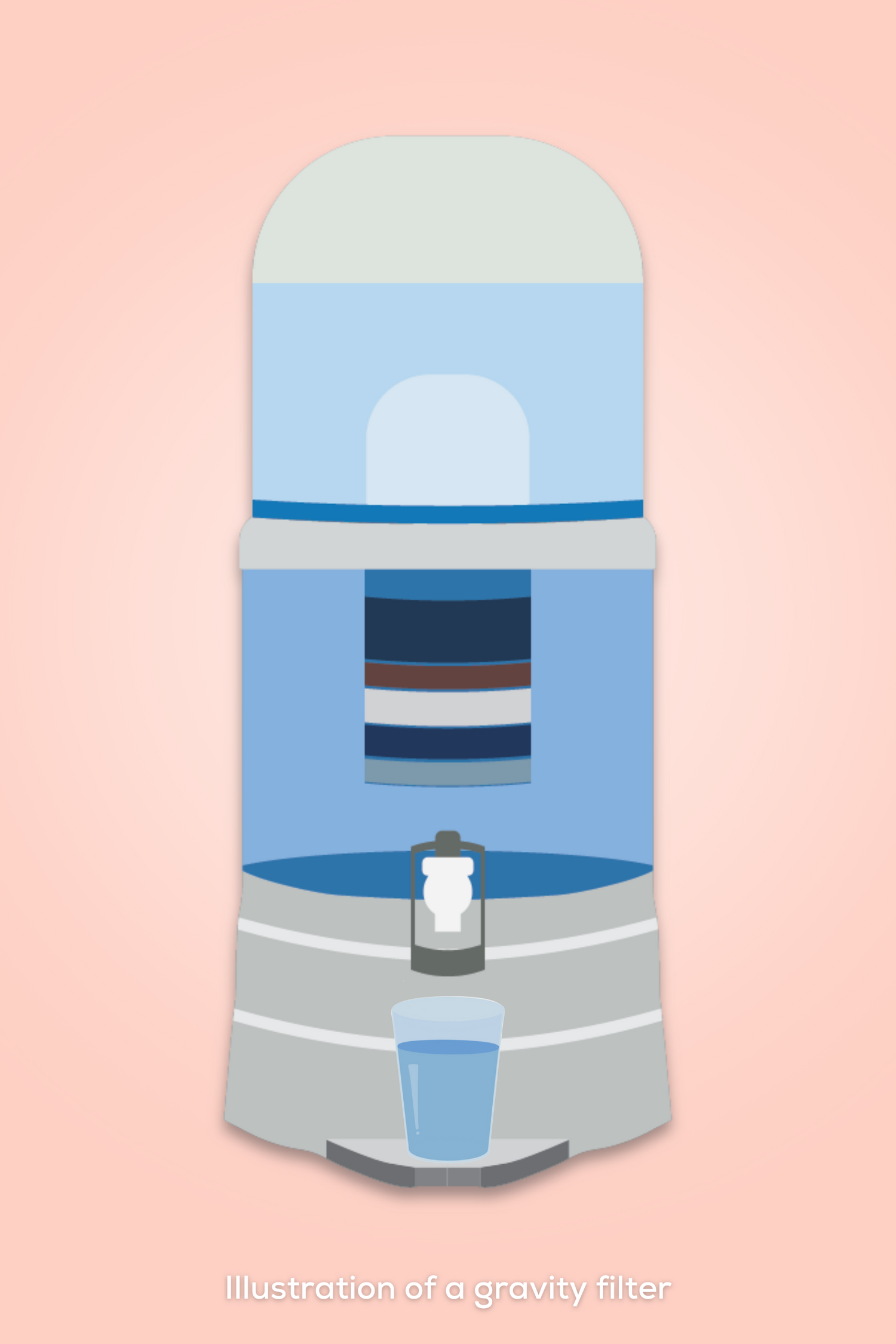
How gravity filters work
Gravity filters use a straightforward process to clean water by relying on the natural pull of gravity to remove impurities:
Step 1: adding the water
Unfiltered water is poured into the top section of the gravity filter.
Step 2: gravity-powered filtration
Gravity pulls the water down through a filter element with microscopic pores. These pores block contaminants, allowing only clean water into the lower chamber.
Step 3: multi-layer filtration
The water passes through several layers of filtration media arranged to catch different particles. Larger contaminants are trapped at the top, while smaller particles are removed in the lower layers.
Step 4: filtered water collection
The filtered water collects in the lower chamber and is ready for use.
Gravity filters are simple and effective for basic filtration but might not remove all contaminants.
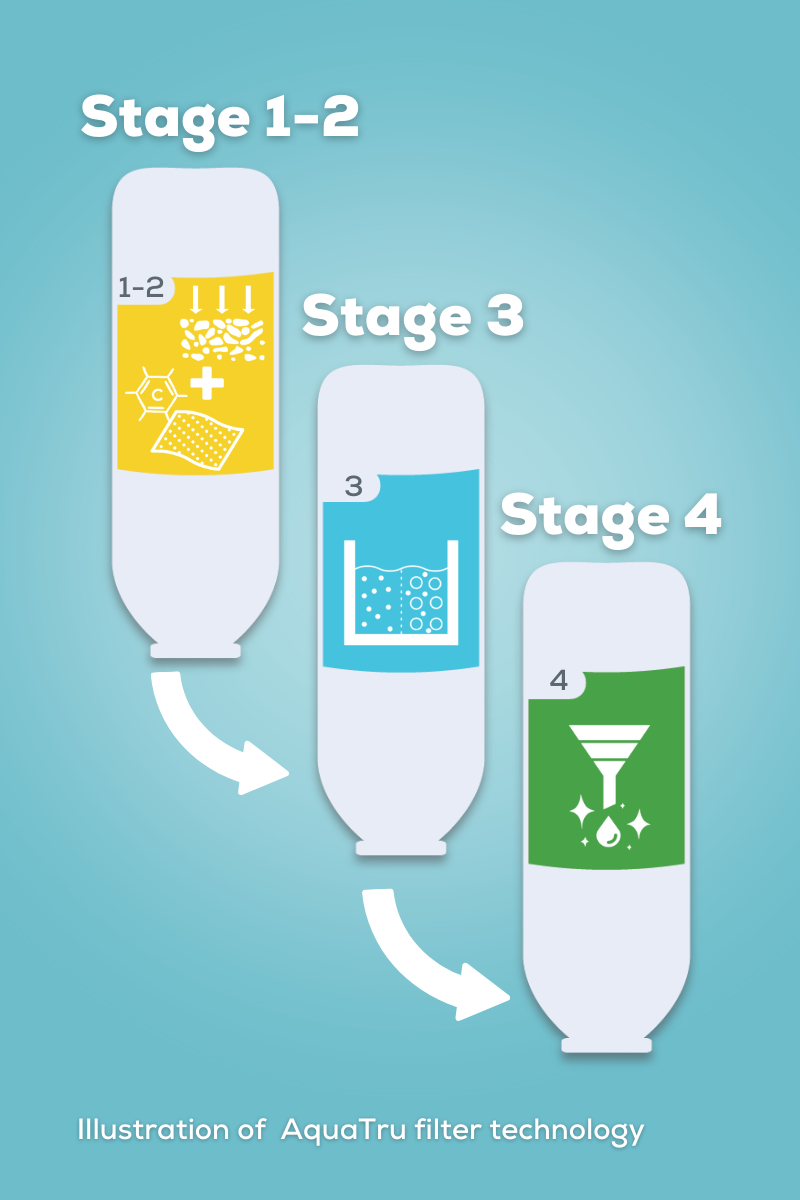
How AquaTru’s advanced RO filtration works
AquaTru's reverse osmosis systems go beyond the capabilities of gravity filters, offering a deeper clean with patented 4-stage technology. Unlike other reverse osmosis systems that may use varied combinations of filters, AquaTru's setup is optimised to remove contaminants while being easy to use at home.
Stages of AquaTru’s filtration system:
- Sediment filter: starts by capturing larger particles such as dirt and silt.
- Carbon filter: removes chlorine and other chemicals, improving taste and extending the lifespan of the RO membrane.
- Reverse osmosis membrane: removes nearly all contaminants, including heavy metals, microplastics and pharmaceuticals, for immaculate water.
- VOC polishing filter: finishes the process by refining the water's taste providing fresh and clean water every time.
AquaTru's advanced multi-stage filtration removes up to 99% of harmful contaminants, ensuring high-quality water for everyday use. This process has been independently tested and scientifically validated.
-
Key benefits of AquaTru’s RO filters:
- Highly effective: removes up to 99% of harmful substances, including heavy metals, pesticides, microplastics and pharmaceuticals.
- Improves taste and smell: delivers crisp, fresh-tasting water with its multi-layer filtration system.
- Long-lasting filters: high-quality components require fewer replacements and minimal maintenance compared to other systems.
- Perfect for home use: an ideal choice for families looking for a comprehensive system to ensure safe drinking water.
Key considerations: Cost, environmental impact, and ease of use
Choosing the right water filtration system involves more than just considering filtration efficiency. Factors like cost, environmental impact, and ease of use are equally important. Below is a comparison of gravity filters and reverse osmosis systems such as AquaTru, outlining these key factors to help you make an informed decision.
Filtration effectiveness
-
Gravity filters provide basic filtration by reducing chlorine and improving water's taste and smell. However, they are less effective against harmful contaminants. AquaTru's reverse osmosis system removes up to 99% of toxic substances, offering a much more reliable, clean, safe water solution.
Cost and long-term investment
-
Gravity filters tend to be cheaper initially, though long-term costs can vary depending on filter lifespan, usage frequency, and water quality. In contrast, AquaTru reverse osmosis systems come with a higher upfront price, but they may deliver savings over time through their available filter packages, effective performance, and durability that can last years, subject to proper use and upkeep.
Environmental impact
-
Gravity filters are energy-efficient but generate more waste because of their shorter filter lifespan. AquaTru systems, while using electricity, produce less waste in the long run and help reduce plastic waste by decreasing bottled water usage.
User experience and convenience
-
Gravity filters, while simple to set up and operate without electricity, come in various sizes – with larger models being less portable and requiring manual upkeep such as cleaning and backflushing, sometimes including chemical sanitisation. In contrast, AquaTru reverse osmosis systems, particularly the countertop models, offer greater convenience. They are plug-and-play, require no installation, and are easy to move, fitting neatly on any worktop. These systems streamline usage with automated filter monitoring and maintenance alerts and feature a straightforward descaling process, making them an ideal choice for regular household use with less frequent maintenance.
Deciding between gravity filters and reverse osmosis systems like AquaTru means weighing various factors, including specific filtration needs, budget, and the desired level of contaminant removal. While RO systems come with a higher initial cost, their long-term benefits—reduced maintenance and improved water quality—make them an appealing option for comprehensive water purification. What distinguishes AquaTru is its independent certification by IAPMO, having been tested to NSF/ANSI standards 42, 53, 58, and 401. AquaTru removes up to 99% of harmful substances, ensuring safe, reliable filtration with performance data available for review.
For more details about AquaTru and its benefits, visit our 'Why AQT' page. Learn how AquaTru can provide your home with superior water quality. Don't forget to check the performance data sheets for the Carafe and Classic to see how effectively AquaTru countertop systems remove contaminants.
